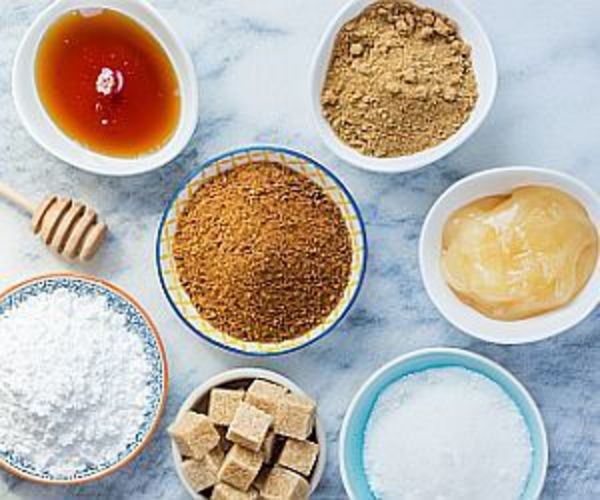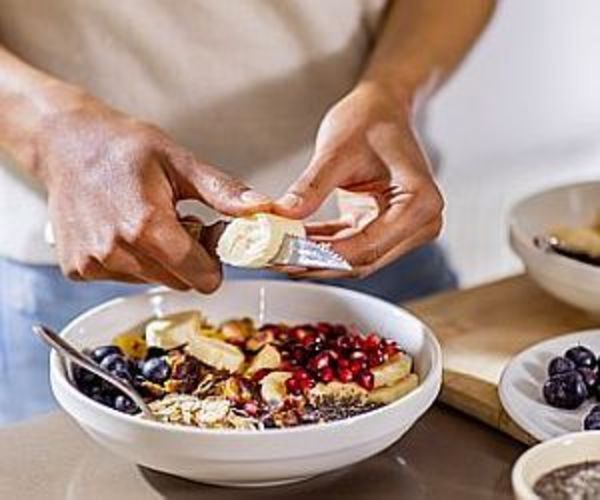
Sweet Stuff: Finding a Balance with Sugar
A little sweetness is a good thing. But, when it comes to sugar, we eat way too much of it in the form of added sugars, which experts tell us can be bad for health. How can we tell when it’s too much? What effect does excess sugar have on our health? And are there ways to add a little sweetness to our lives without giving up the sweet stuff completely? We talked to a health expert to find out what the science says about sugar and how we can create a healthier relationship with sweets.

Are All Sugars Created Equal?
You may think some sweeteners are better for you, but don’t be confused by wholesome-sounding ingredients like agave nectar. “[The] body processes all added sugars the same way,” says Dr. Kristina Petersen, Assistant Professor of Nutritional Sciences at Texas Tech University and member of the American Heart Association’s Nutrition Committee. Find out more on the blog.

Get Balanced!
“Sugary foods can trigger the release of dopamine, our body’s ‘feel good’ chemical that can lead to more cravings,” says Dr. Petersen. In addition, stress, lack of sleep, and poor nutrition can make us want more sweets. Cutting sugar too quickly can result in withdrawal symptoms including headaches, fatigue, and mood swings. Taming your sweet tooth isn’t always easy, but it can be done.

Reduce It!
There are many ways to reduce added sugars. One idea: Make savvy sweet swaps. Use fruits, herbs, and spices to satisfy your sweet tooth. Naturally sweet foods include bananas, apples, grapes, dates, berries, and prunes. Spice things up with vanilla and cinnamon. Boosting flavor helps you feel satisfied and can reduce sweet cravings.
Note: Since everyone’s health history and nutritional needs are so different, please make sure that you talk with your doctor and a registered dietitian to get advice about the diet and exercise plan that‘s right for you.
